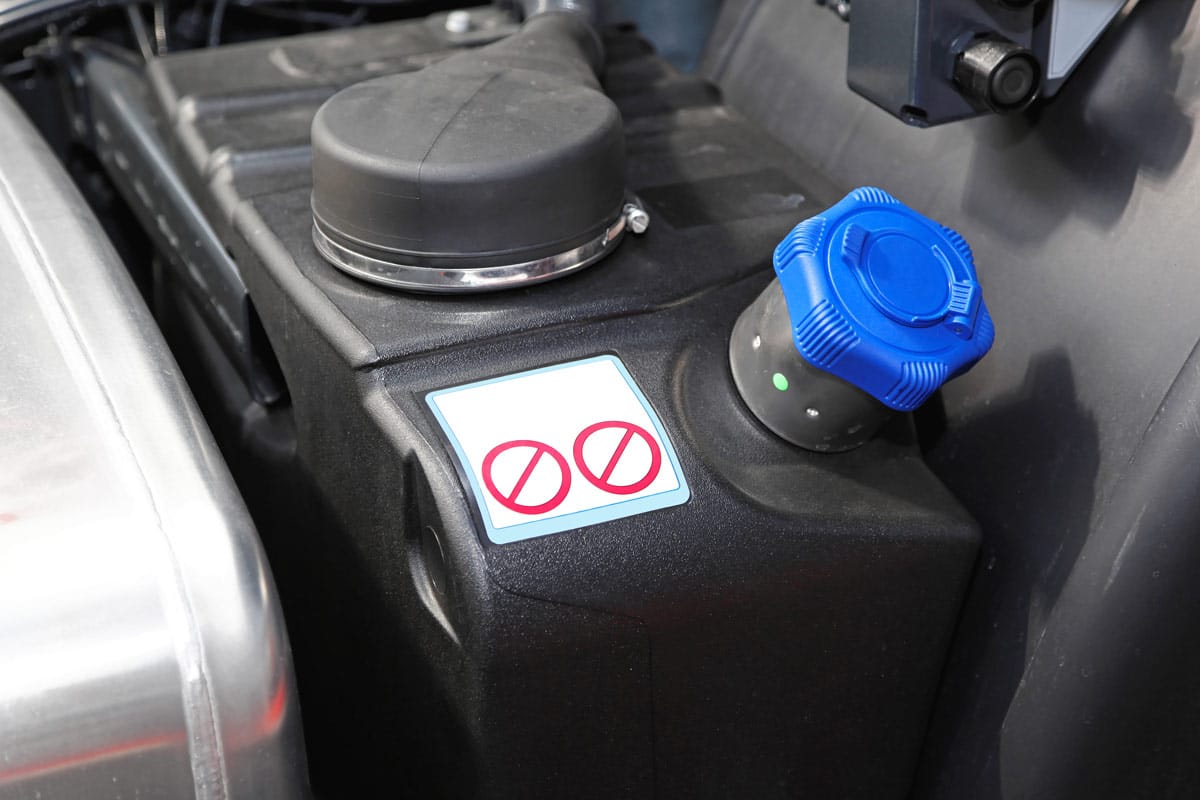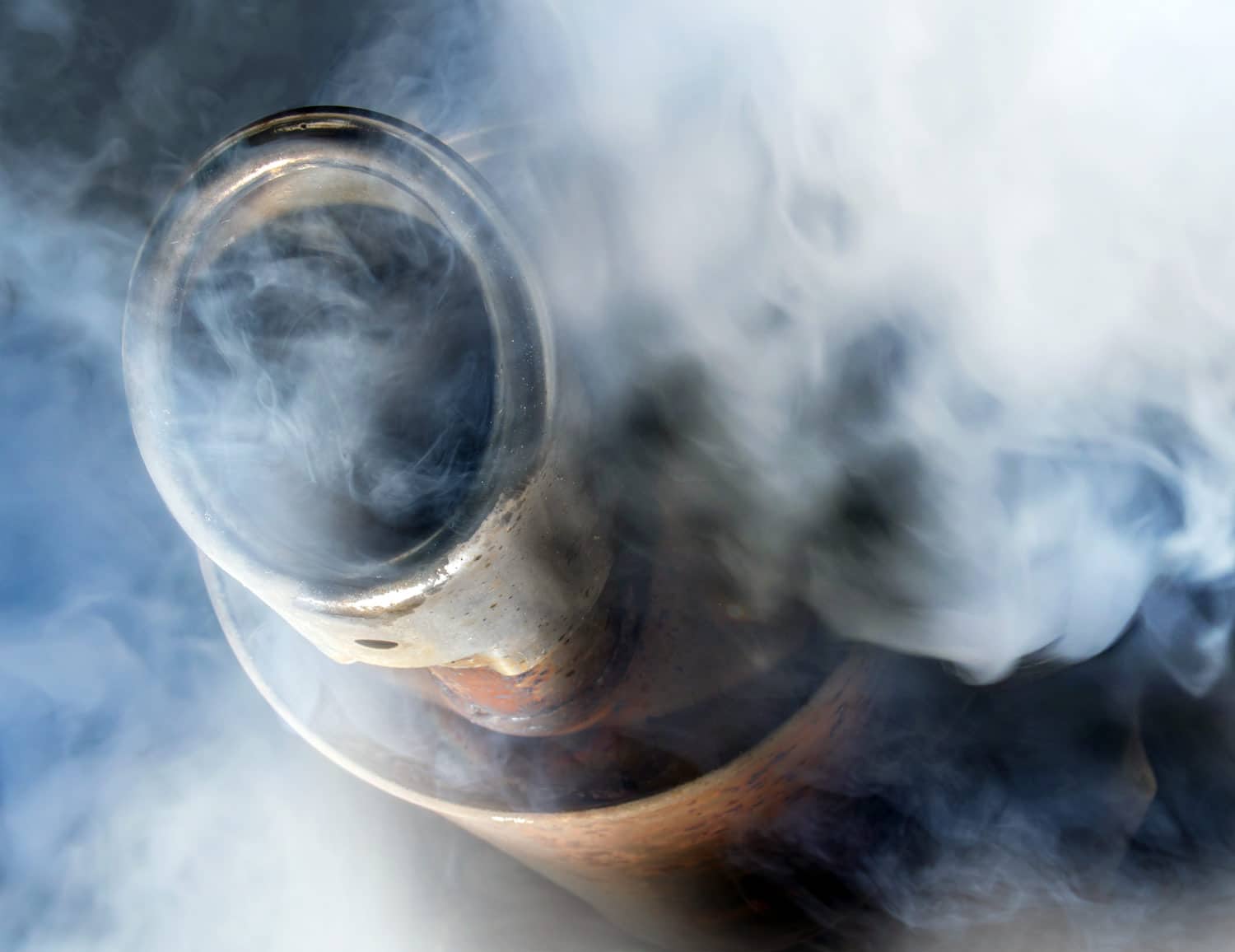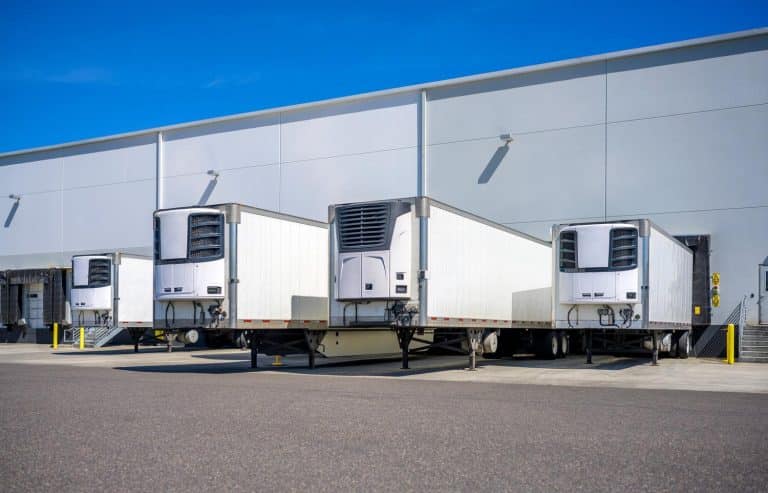If you are driving a diesel-powered truck that was manufactured from 2010 onward, it requires diesel exhaust fluid (DEF).
You may know that you need DEF in your vehicle, but you may not understand what it is for. This post will answer your questions about DEF.
What is DEF Fluid?
First of all, let’s start by answering the most basic question and defining what diesel exhaust fluid actually is.
What is DEF fluid made of? DEF is a combination of deionized water and urea. The urea in turn consists of nitrogen, carbon, hydrogen and oxygen.
Looking at DEF, it would be easy to mix it up with water. But the smell of ammonia will help you tell it apart from regular H2O.
Why Do Diesel Trucks Use DEF?

In our time of climate change, it has become crucial for every industry to do what it can to curb its emissions. The trucking and transportation sector in particular needs to take action to reduce its carbon footprint. According to the EPA, the transportation sector contributed 27% of greenhouse gas emissions in 2020.
Since 2010, the EPA has required that all diesel vehicles use DEF.
Here is how it works:
1. Diesel combustion takes place in your engine.
2. The combustion process releases hot gasses.
3. DEF and the gasses mix together.
4. A chemical reaction results in DEF breaking down to form carbon dioxide and ammonia.
5. The carbon dioxide and ammonia bond with the nitrogen oxides in the diesel exhaust.
6. The end product the tailpipe emits is a combination of water and nitrogen.
Is DEF Safe?
You will be glad to know that DEF fluid is safe to handle. While it can stain your clothes, it will not harm you if you get it on your hands, etc. That said, you should never ingest it, and you should avoid inhaling the fumes.
DEF fluid is also safe for your engine—assuming that the fluid you are using is uncontaminated. If there are contaminants in your DEF, they could damage the injectors and catalysts of the SCR system.
This is not an issue with fresh DEF. But over time, it is possible for DEF to go bad, especially if you are storing it incorrectly. If you are storing it in titanium, stainless steel, rubber or plastic, it should be just fine. But if you are storing it in a container that is made out of copper, carbon steel, epoxy resin, nickel or aluminum, it could corrode those materials. If that happens, some of the materials themselves could mix in with the DEF fluid, causing contamination. For the same reason, you also should not put DEF in a tank that used to contain something else.
One more thing to know about storing DEF fluid is that the ideal temperature is around 60 degrees Fahrenheit. If the temperature gets up to 80 degrees, the shelf life will be only a year. It can last three times that long when you store it at 60 degrees.
The easiest way to know if your DEF is still viable is just to take a look at it. Does it still look like water? Then it is probably fine. If it has changed color, then it has gone bad.
What Do You Do If You Run Out of DEF Fluid?
If your truck gets around 6 miles per gallon, you can expect a gallon of DEF to last you about 300 miles. At that point, you will need more DEF.
If you notice your DEF fluid getting low, you should be able to re-up it just by pulling in at a gas station or truck stop.
Important: Do not accidentally put your DEF in your diesel tank. Also, do not ever put diesel in the DEF tank (not that you are likely to make these mistakes).
Not every gas station stocks DEF, however, so it is wise to look up locations along your route where you can purchase it in advance.
It is also possible to bulk buy DEF, which will save you money.
Now, clearly there was a time before DEF. This may make you wonder, “Do I really need this stuff? If it runs out, I’ll be fine, right? I just will be producing dirtier emissions for a while.”
Actually, running out of DEF is a big problem. The EPA knows that some drivers might decide to just skip it if they were to have the option, so, they made sure they don’t.
If you run completely out of DEF, your vehicle’s engine will start operating at reduced power. You will be able to keep driving, but no faster than 5 miles per hour.
Hypothetically, if you are close to a truck stop, you might be able to crawl your way there and get more DEF when you arrive. But imagine this happening to you while you are on a long, lonesome stretch of highway in the middle of nowhere, far from any services. You might still be effectively stranded (not to mention, you’ll have to deal with the consequences of falling way behind schedule).
Thankfully, you cannot easily forget to top up your DEF. The dashboard will warn you when levels fall below 10%, 5%, and 2.5%. Hopefully if you see the alert at 10%, that will give you enough notice that you can make a stop to pick up what you need before you run out.
Wait—Can I Just Pee in My DEF Tank?
No doubt you blinked when you read the word “urea” in the list of DEF contents. You might be thinking, “If DEF is just deionized water and urea, can’t I just fill my DEF tank with urine? I’ve got jugs of it that I’m filling up when I’m on the road anyway. This is the perfect solution to both problems.”
Alas, no, it is not that easy. Here are the reasons you cannot simply dump your urine into your DEF tank:
- Your urine might have contaminants in it. DEF must be free of contaminants.
- Automotive grade urea and human urine do not share an identical chemical composition.
- You would need to be able to precisely measure the ratios of ingredients.
- You also would need to be able to get the type of water you need, which is highly specific. You cannot just pour in regular bottled water or tap water.
- Trying to create DEF this way certainly will fall short of meeting ISO 22241 standards.
What will happen if you pour water and urine into your DEF tank? Not only will they not do the same job as diesel exhaust fluid, but they could actually damage your vehicle. Just pay for DEF. It is better than paying a repair bill.
DEF Keeps Your Diesel Truck Running While Reducing Harmful Emissions
Now you know what diesel exhaust fluid is and why it is so important. Without it, your truck will barely be functional. With it, not only can you keep driving, but you can do so knowing that you are producing cleaner emissions and doing your part to help slow climate change and its harmful effects on our planet.







